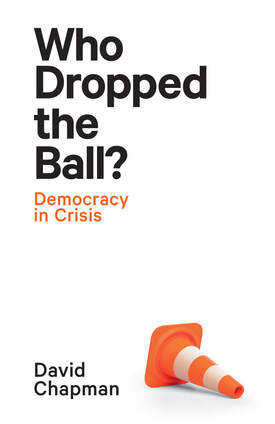
by David Chapman
In a nutshell this is a unique polemic with a clear analysis of recent political history, and an argument for reform. However, it is not the actual case for reform that is compelling, but the economic analysis that precedes it that is so cogent. Although it was probably written before the Covid crisis, and the sweeping measures that resulted from it, the most important thing is the historical context that Chapman provides.
This is in fact a collection of short chapters that can be read quickly, and the book as a whole in one sitting. It also relies on readers being familiar with the political context, especially pre-MMP politics. Chapman is obviously an older New Zealander, with a good memory for anecdotes and examples that help his argument. And, unlike most older citizens, he is not very conservative (as in right wing). Despite being in business, Chapman actually seems to prefer the current Prime Minister, Jacinda Ardern, and even has a soft spot for Metiria Turei, the former Green Party leader.
This is one of the more interesting points he makes, it is not that we have got the wrong person in the job, it is just the way that it happened that concerns him. I think this is mostly because it singles out an individual and whether they are liked in the opinion polls, which are a construction of the news media. But Chapman seems to think the main problem is with the political parties. So basically he wants to outlaw political parties, and then have a benevolent elite of public figures work out who the best representatives should be, and allow Parliament as a whole to govern. This would also end the role of the Executive in the governing process, something which he does not really consider, as with other obvious aspects of a constitutional democracy.
The removal of political parties comes despite the impact of the new electoral system, MMP. However, it has to be said that the MMP system would allow for many more independent voices in Parliament if we used the electorate vote to put them in there. Chapman came to his views on parties as a satirical one, but plays it out anyway.
In terms of ‘Who dropped the ball’, this goes back to politicians in the 1980s, especially Roger Douglas and Richard Prebble, who said one thing then imposed a whole other agenda. It does not help the analysis that Chapman continually refers to ‘neo-liberalism’, a term that was not used at the time, but at least he does not use the phrase ‘Rogernomics’. This may seem old hat, but the economic analysis is very good. It simply remains to find fault with the individuals, or the institutions involved.
Essentially, Chapman’s position is that elected politicians allowed foreign capital to come in with little ongoing scrutiny, at the same time as the public assets were given away in a fire sale. The questions remain over the latter, and who really forced the political parties into it. Chapman makes the point that one of the beneficiaries of privatisation, the Fay Richwhite company, appears to have been insolvent the whole time it was involved in the asset sales. The real culprits must be who knew about this at the time, but ignored it.
Chapman’s overall message is about the loss of economic sovereignty, and the fact that unemployment never got back below what it was in the mid 1980s. But in the end the case is a moral one, when society is reduced to economic self interest and greed.
Author: David Chapman
Publisher: Copy Press and David Chapman
ISBN: 9780473517328
RRP: $20
Available: https://whodroppedtheball.co.nz/

 RSS Feed
RSS Feed
